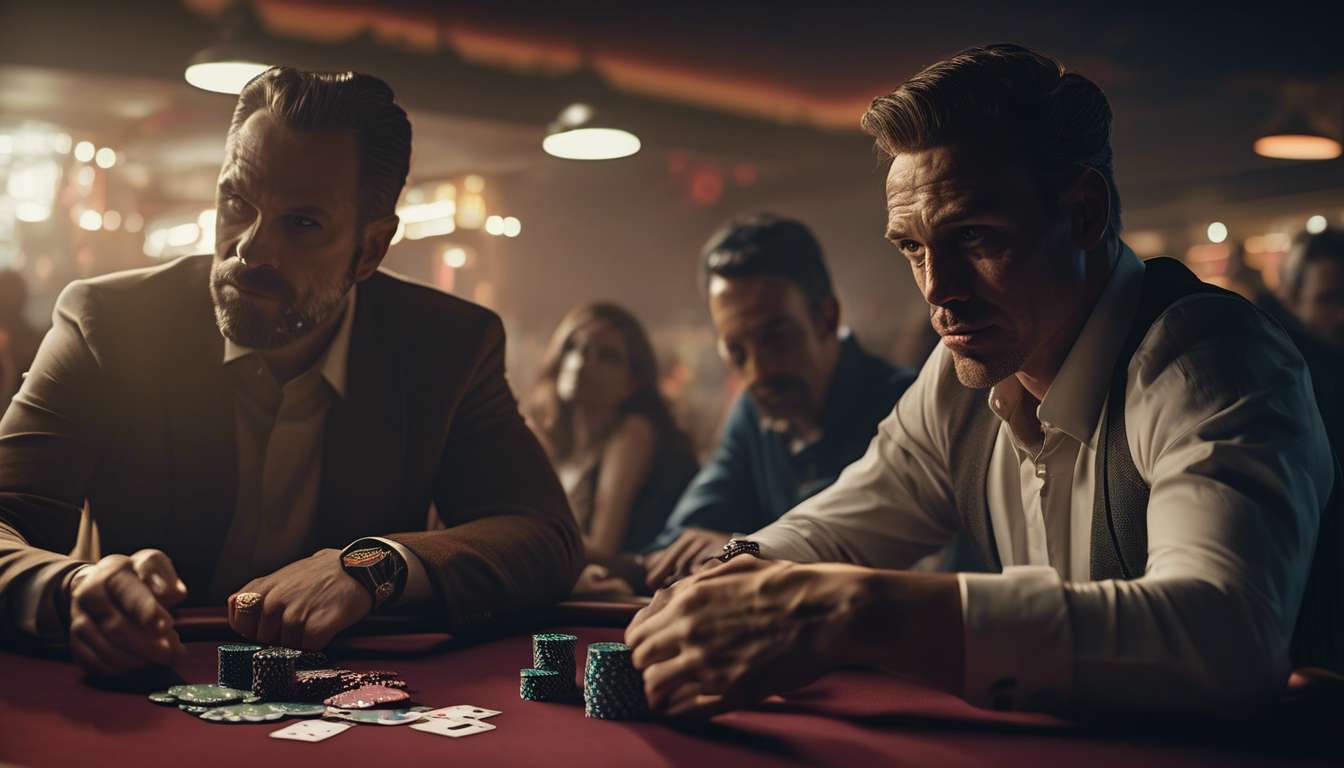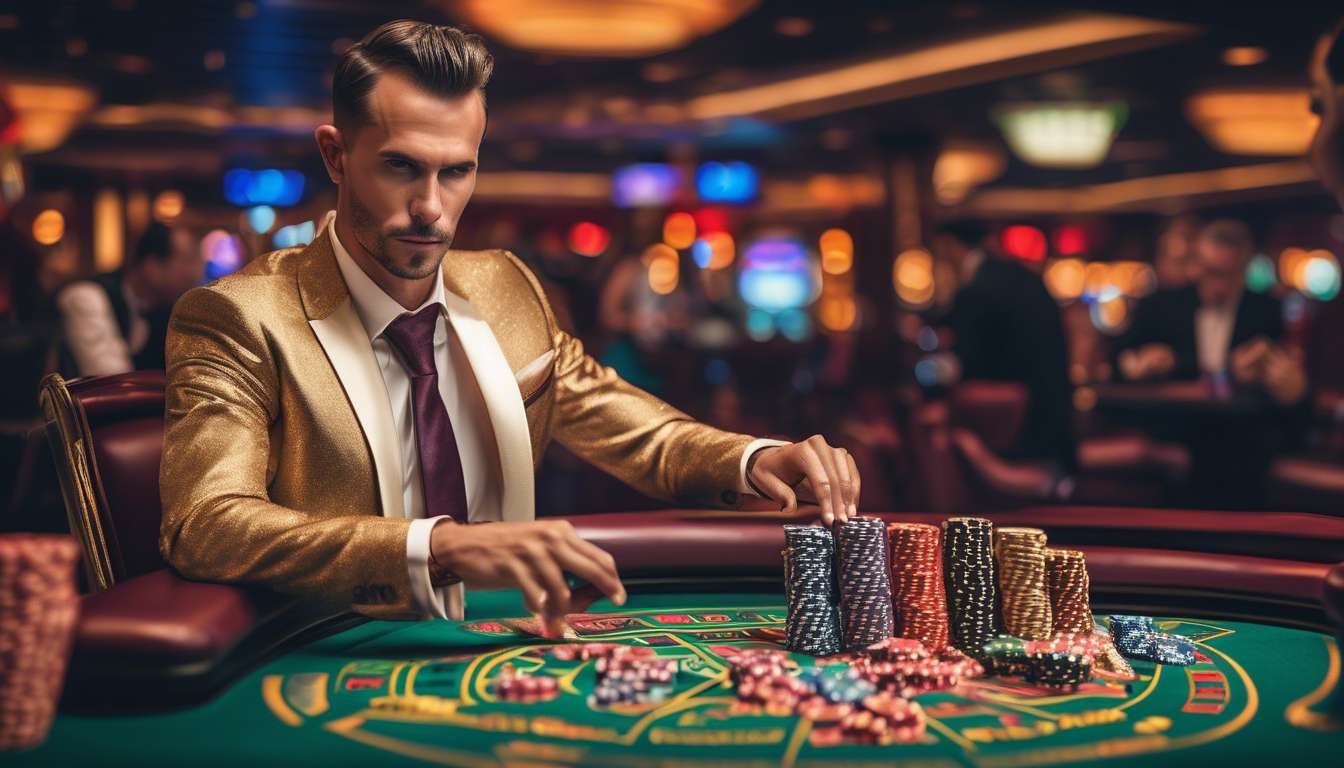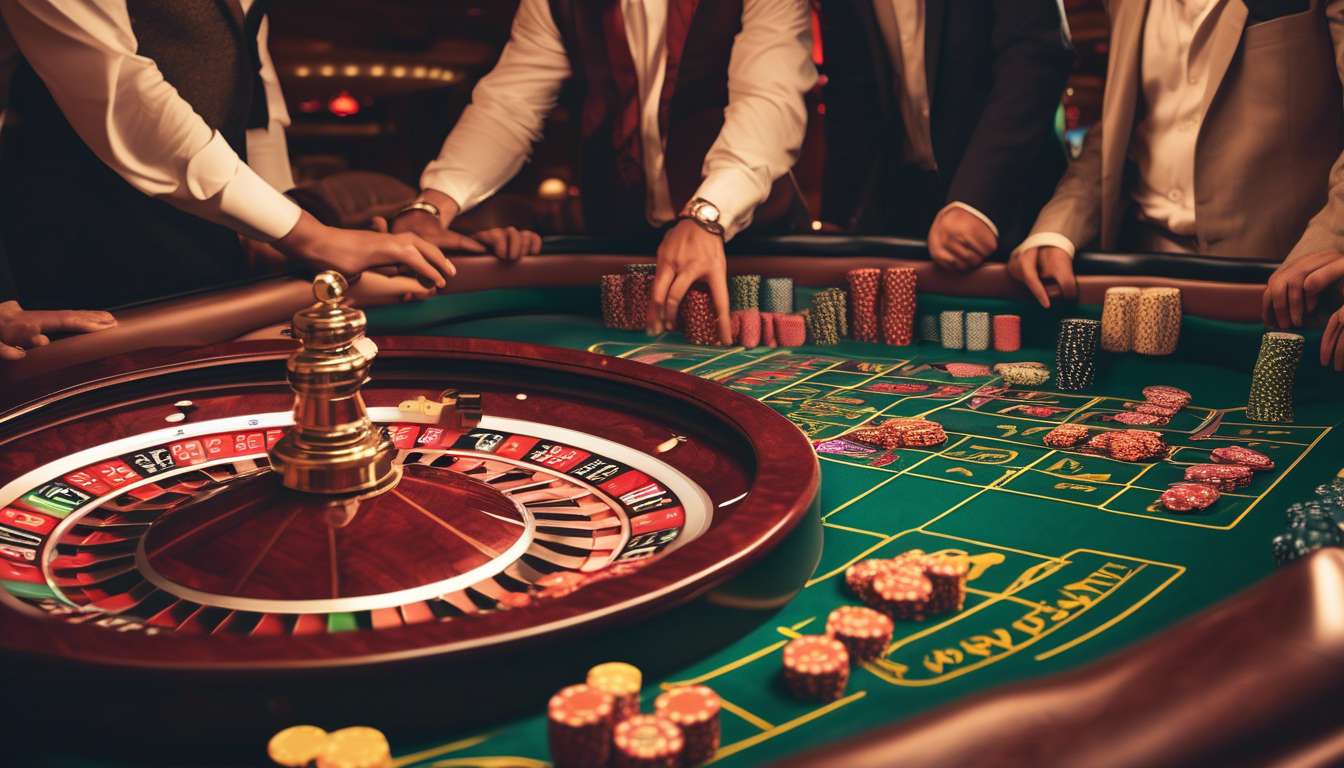In the world of gaming, casinos captivate us with their vibrant allure, promising the potential for fortunes to change with the turn of a card or the roll of a die. As players, we encounter a variety of strategies claiming to enhance our odds and improve our experience at the tables.
Understanding Casino Strategies:
-
Promise of Tipping Odds:
- Many strategies are designed to offer an edge, suggesting they can alter the house advantage in the player’s favor.
- These strategies range from simple betting systems to complex card counting techniques.
-
Impact on Experience:
- Implementing strategies can change the way we engage with games, potentially increasing enjoyment and involvement.
- The act of strategizing itself can provide a sense of control and purpose.
Six Key Facts About Casino Strategies:
-
House Edge:
- Despite strategies, the house always maintains a mathematical edge, ensuring long-term profitability for the casino.
-
Skill vs. Chance:
- Some games, like poker, incorporate skill elements where strategies can be more effective, while others, like roulette, are purely chance-based.
-
Illusion of Control:
- Strategies might create an illusion of control, providing confidence but not necessarily altering outcomes.
-
Psychological Influence:
- The use of strategies can affect a player’s mindset, potentially leading to more disciplined gameplay or, conversely, riskier behavior.
-
Short-Term vs. Long-Term:
- Strategies may offer short-term successes but often do not change the long-term odds.
-
Common Myths:
- Many strategies are based on myths, such as the gambler’s fallacy, which can mislead players into making poor decisions.
Exploring Truths and Myths:
By examining these facts, we aim to determine whether casino strategies are mere illusions or if they genuinely influence our fortunes. Our journey reveals that while strategies can enhance our gaming experience, they do not guarantee success. Understanding this balance is key to navigating the captivating world of casinos with both excitement and awareness.
House Edge Reality
Every casino game is designed with a built-in house edge that ensures the casino’s long-term profitability. This concept might seem cold and calculated, but it’s crucial to understand that it’s not just about numbers.
Psychological Influence:
- The thrill of the game
- The community and social experience in casinos
These elements play a significant role in why people are drawn to casino tables, despite knowing about the house edge.
Myths and Reality:
We often hear myths about beating the house, tales of strategies that promise a sure win. However, it’s important to face reality:
- The House Edge: The odds are always tilted in the casino’s favor.
- Exaggeration of Stories: Many strategies or tales of winning often exaggerate the truth.
Conclusion:
By understanding the house edge and its influence, we can enjoy the games while staying grounded in reality. This allows us to embrace the experience with our eyes wide open, appreciating the fun without being misled by myths.
Skill vs. Chance Debate
In the ongoing debate of skill versus chance in casino games, we often question how much control we truly have over the outcome. Gathering around the blackjack table or the roulette wheel, we seek camaraderie and a shared thrill. Yet, we must acknowledge the house edge that quietly tilts the odds in favor of the casino.
While some games like poker involve skill, others rely heavily on chance, reinforcing the psychological influence that keeps us coming back for more.
We’ve all heard myths suggesting that mastering a strategy can turn the tides in our favor. However, these tales often overlook the constant presence of the house edge, ensuring the casino’s long-term advantage.
Despite this, the allure of possibly outsmarting the odds draws us together, weaving a tapestry of shared experiences and dreams of victory. As we play, we find ourselves not just in pursuit of wins, but also of belonging with fellow thrill-seekers.
Illusion of Control Impact
We often convince ourselves that our choices at the casino table can influence the outcomes, despite knowing deep down that randomness plays a significant role. This illusion of control gives us a sense of belonging to the game, making us feel more invested and engaged.
However, the reality is that the house edge is always working against us, ensuring the casino’s profitability over time. This psychological influence can make us believe in myths about lucky numbers or hot streaks, even though these are just illusions crafted by our desire to beat the odds.
As a community, we thrive on shared experiences and stories of near wins, reinforcing the myth that our strategies can alter the game. We share tips and tricks, creating a culture where the illusion of control is perpetuated.
While these shared narratives bond us, it’s essential to remember that the house edge ultimately controls the game, regardless of the strategies we employ.
Psychological Influence of Strategies
Many of us rely on a variety of strategies at the casino, driven by the belief that we can outsmart the odds through calculated decisions. We often find comfort in these strategies, feeling a sense of camaraderie with fellow players who share similar hopes.
However, the house edge is a constant reminder that the odds are not in our favor. The psychological influence of our chosen strategies is powerful, as it makes us feel more in control, even when the outcome is largely governed by chance.
We tend to cling to popular myths, like "hot streaks" or "lucky numbers," thinking they might tip the scales in our favor. This shared belief can create a bond among us, fostering a sense of belonging and shared experience.
Nonetheless, it’s crucial to recognize that these strategies, while providing psychological comfort, don’t alter the house edge.
By understanding the psychological influence of these myths, we can approach our casino experiences with more awareness.
Short-Term vs. Long-Term Success
Understanding Short-Term Thrills vs. Long-Term Results
When we gamble, it’s common to focus on the short-term wins and the rush of excitement that accompanies a quick victory. However, it’s essential to understand the difference between these fleeting thrills and the long-term results of gambling.
The Role of the House Edge
Casinos are designed for the long haul, and the House Edge ensures that the house always comes out ahead over time. While chasing thrilling moments, it’s crucial to recognize how the House Edge influences our outcomes in the long run.
Psychological Influences in Gambling
Psychological factors significantly impact how we perceive our successes and losses.
- A series of short-term victories can create a false sense of invincibility, leading us to believe in myths about luck being on our side.
- Maintaining a realistic perspective helps us balance immediate enjoyment with awareness of potential long-term consequences.
Fostering Community and Understanding
By acknowledging the dynamics of gambling, we can foster a sense of community among fellow gamblers. This community appreciates both the fun of gambling and the importance of understanding its broader implications.
Debunking Common Myths
Many gamblers fall victim to misconceptions that can distort our understanding of how casino games truly operate. Let’s debunk some of these myths together.
One common belief is that we can beat the house by sheer luck alone. However, the house edge is always in play, ensuring the casino’s advantage over time. This doesn’t mean we can’t enjoy ourselves or experience occasional wins, but it’s essential to recognize that the odds aren’t in our favor long-term.
Another myth is that certain strategies can influence outcomes in games of chance. While strategies might offer some structure, they can’t alter the inherent randomness or the house edge.
- Psychological influence plays a significant role here.
- We might feel more in control when using a strategy, but it’s crucial to remember it doesn’t change the game’s fundamentals.
By understanding these myths, we can foster a more realistic perspective, creating an inclusive community of informed players who prioritize fun over unfounded beliefs.
Effectiveness of Strategies
When assessing the effectiveness of strategies, we must acknowledge that while they can provide structure, they don’t alter the fundamental odds of casino games. The house edge remains a constant, reminding us that casinos are built with a statistical advantage.
Strategies offer psychological benefits:
- They help us feel more in control.
- They create a shared sense of camaraderie among players.
- They foster a community of hopeful strategists.
Despite the myths surrounding foolproof methods, strategies mainly serve a psychological influence, allowing us to enjoy the game with a sense of agency. It’s comforting to think we’re doing something proactive, even if the reality is that luck primarily drives our outcomes.
While strategies can’t change the house edge, they can enhance our gaming experience by fostering a sense of belonging and shared excitement. We must remember, though, that the allure of strategies lies more in their ability to entertain and engage, rather than guarantee wins.
Balancing Expectations and Realities
As we dive into the art of balancing expectations and realities, it’s crucial to acknowledge that while strategies can enrich our gaming experience, they won’t transform the inherent odds stacked against us. Casinos are designed with a House Edge that ensures their profitability over time. We must understand this reality to keep our gaming enjoyable and within limits.
Our collective desire for belonging can sometimes lead us to buy into myths that promise quick wins. However, recognizing the psychological influence these myths wield helps us stay grounded. Strategies might offer the thrill of control, but they can’t alter the mathematical certainty embedded in casino games.
Together, we can embrace strategies as a part of the fun, not as guaranteed solutions. By acknowledging the House Edge and the psychological pull of myths, we empower ourselves to enjoy the experience without unrealistic expectations.
Let’s remember, we’re in it for the enjoyment and camaraderie, not just the elusive jackpot.
What are some common misconceptions about how casino games operate behind the scenes?
When it comes to how casino games operate behind the scenes, there are several misconceptions that people often have.
One common misunderstanding is that casinos can manipulate individual game outcomes. In reality, most games are based on random chance.
Another misconception is that certain strategies can guarantee wins. In fact, the outcomes of most casino games are simply unpredictable.
Understanding these misconceptions can help us approach casino gaming with a more realistic perspective.
How do casinos use technology to monitor and influence player behavior?
We rely on cutting-edge technology to closely watch and shape player behavior in our casinos.
Advanced Surveillance Systems:
- Track movements, behaviors, and gaming patterns.
- Ensure a safe and enjoyable environment.
Data Analytics:
- Identify trends and preferences.
- Tailor offers and incentives to enhance the overall gaming experience.
Our goal is to provide a personalized and engaging atmosphere for all our guests.
What role does superstition play in player decision-making at casinos?
Superstition holds sway in our decisions at casinos.
Whether it’s lucky numbers or rituals, many players believe in their power. These beliefs can affect how we bet, play, and even choose games.
Sometimes, superstitions can bring comfort and confidence, providing players with a sense of control.
However, other times they might lead to risky choices, influencing decisions that are not based on logic or probability.
Overall, acknowledging and understanding these influences can help us navigate the casino environment more consciously.
By being aware of how superstitions affect our behavior, we can make more informed and balanced decisions while playing.
Conclusion
In conclusion, understanding casino strategies involves several key concepts:
-
The Influence of House Edge: Recognizing how the house edge affects the likelihood of winning is crucial for any gambler.
-
The Debate Between Skill and Chance: It’s important to understand which games rely more on skill versus those that are primarily chance-based.
-
The Psychological Impact of Perceived Control: Many players believe they have some control over the outcome, which can affect their gaming behavior.
Debunking Myths is another essential aspect. Gamblers should be aware of common misconceptions and focus on balancing short-term successes with long-term realities.
Ultimately, while strategies may offer some effectiveness, managing expectations is key in navigating the complex world of casino gaming.




